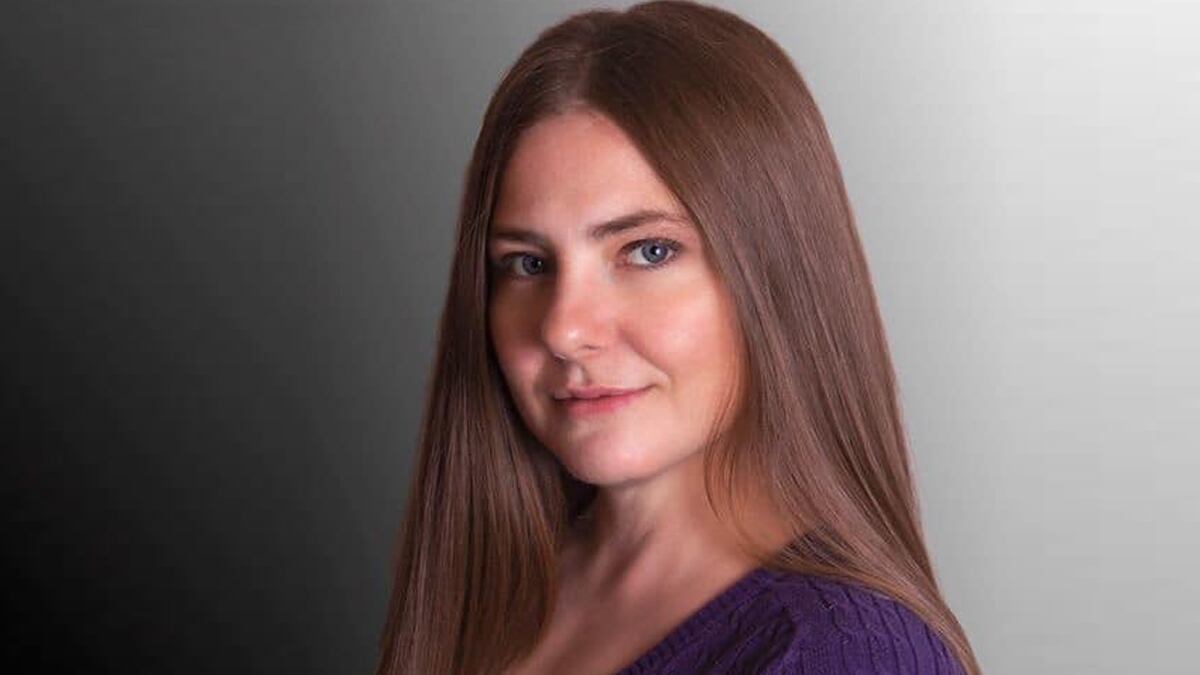When Valerie Asbell directed Hamlet, she decided that Ophelia (whom she was playing) should be a chess prodigy.
“I know the chess metaphor has been done to death, but I was like, ‘Screw it. I don’t care. I’m doing it anyway.’” Asbell says. “I think that life is kind of like a chess game. You play your move the best you can—and sometimes you’re a pawn in life and sometimes you’re the queen and sometimes you’re whatever.”
Asbell, who is the artistic director of theater company Clever Enough, is no pawn. She has been directing virtual productions of What You Need, a quasi-autobiographical play she wrote about a woman deciding whether to buy a piano during the pandemic, as well as two productions by British playwright Caryl Churchill: The Judge’s Wife and Not Not Not Not Not Enough Oxygen.
Theater is just one galaxy in the universe of Asbell’s artistic passions—she is also a musician and a visual artist. In a recent conversation with WW, she discussed not only her devotion to Shakespeare and Churchill but the many other creative pursuits that animate her.
1. My copy of The Complete Works of Shakespeare
I think a lot of people like me are just really intimidated by Shakespeare. So my mother always says, “I don’t know how I ended up with a kid who likes Shakespeare,” and she laughs it off. But it’s for everybody. With the raw emotion and the poetics of the words, I relate to what he’s talking about. There’s a Shakespeare quote for everybody. “Our wills and fates do so contrary run, that our devices still are overthrown; our thoughts are ours, their ends none of our own.” That’s from Hamlet.
2. My copy of Top Girls by Caryl Churchill
The play rebels against the idea that being a “powerful, feminist woman” means becoming one of these people in these big, wealthy corporations that just make life hell for others. I can honestly tell you, in a metaphorical sense, in a literal sense, that play pretty much saved my life, because it made me find my place in the world and taught me how to think critically about things.
3. Caryl Churchill
Caryl Churchill is my favorite playwright next to Shakespeare. This might sound a little corny, but I think there are some plays that are meant to be “felt” rather than understood. And I think a lot of her work is like that.
4. My guitar
I got my first guitar when I was about 18 or 19. It involves both your left brain and your right brain, and that’s what’s so fascinating about it. It’s logical work and emotional work, and that’s a big reason why it’s on my list.
5. My piano
What You Need was inspired by actual events, wink, wink. I actually wrote the first draft in 24 hours, believe it or not. I had an old piano for 10 years that was just, like, a really cheap one with 61 keys. And then the pandemic happened. I thought, “Should I get a better piano?” I was really, really fretting and being apologetic about it. We live in a society that just doesn’t realize that people need things to take care of their mental well-being.
6. My sketchbook
In hindsight, when I was in college, I kind of wished I’d opted for a design emphasis so I could pick up gigs here and there, like prop design or costume design or something like that. If you’re in any kind of design area in theater and you know how to draw, that’s a huge gold star on your résumé.
7. My camera
So many people are saying, “Why do we need art?” I can honestly tell you, theater is what gave me discipline. And at the same time, it kind of permeated all the other artistic things I like to do, namely photography. If you have a DSLR camera, there’s so many buttons on it, so many things, and you just look at it and your head spins. Being able to learn that felt good.
SEE IT: Not Not Not Not Enough Oxygen streams at 7:30 pm Friday, May 7. The Judge’s Wife and What You Need are TBA. You can access the shows at cleverenough.org/index.php/tickets. Free. $5 donation suggested.
